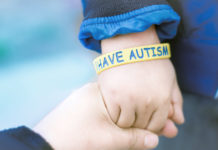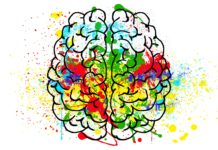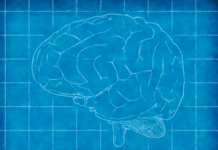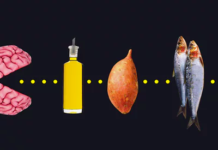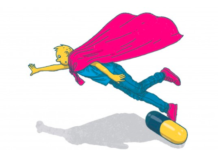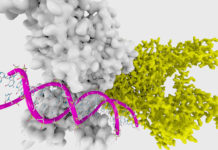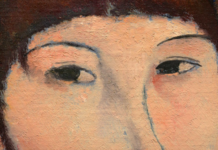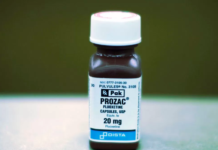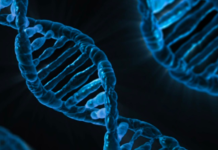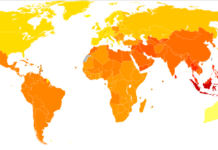Debunking The Latest Gene Study
The researchers suggest that their finding implies a common genetic cause behind five different “disorders.” This is big news! If true, it validates the biomedical view of mental “illness” and suggests that future medical treatments could “cure” these conditions. However, that grand conclusion is not supported by the data.
Direct-to-Consumer Genetic Testing is Often Wrong
Direct-to-consumer (DTC) genetic testing has an “alarmingly high” 40% false-positive rate.
Physical Activity and Exercise May Prevent Depression, Study Finds
Everyday exercise, regardless of intensity, can prevent the development of depressive symptoms.
The Scientism of Autism
Autism is now simply assumed to represent a real, tangible, identifiable ‘thing.’ But no one is asking the obvious question: On what evidential basis can you conclude that autism represents a natural category that can be differentiated from other natural categories? According to the real science, autism should be seen as a fact of culture, not a fact of nature.
Scientists Fight Against the Myth of the Normal or Optimal Brain
A new study out of Yale University uses evolutionary biology to debunk the idea that there is a “normal” or “optimal” brain.
High Rates of Questionable Research Practices Found in Ecology and Evolution
A new study, published online by the Open Science Foundation, suggests that questionable research practices (QRPs) are prevalent in the fields of ecology and evolution.
The Chemical Imbalance Theory of Mental Disorders
In this video for AdvancingMentalHealth.org, Jeff Baker provides a detailed overview and critique of the chemical imbalance theory of mental illness.
“My Brain Made Me Do It” Becoming Common Defense
From Scientific American: Criminal defense strategies are increasingly utilizing neurological evidence—psychological evaluations, behavioral tests and brain scans—to potentially mitigate punishment. Last week, a group of scientists met...
What Is “Normal” Anyway?
From Scientific American: Although "normal" technically means average or typical, both researchers and the general public often view normality as a standard we should all...
The Foods That Can Help and Harm Your Brain
From The Guardian: Nutrition can have a major impact on the health of our brains, including our risk for dementia and cognitive decline. Here is...
Drug Treatment of ADHD – Tenuous Scientific Basis
From Tidsskriftet: Over the past three decades, there has been a dramatic increase in the diagnosis and pharmacological treatment of ADHD. Recent systematic reviews reveal...
Self-Evident
In this piece for Aeon, Serife Tekin argues that contrary to antirealist perspectives emphasizing the illusion of selfhood, there is such a thing as the...
Challenging the Relentless Rise of Depression in Young People
In this piece, Dave Traxson discusses the social and cultural factors contributing to the rise of depression among young people in Britain, arguing that...
Nature Still Battles Nurture in the World of Social Genomics
From Nature: In her new book, Social by Nature: The Promise and Peril of Sociogenomics, Catherine Bliss discusses the social context and potentially biodeterministic implications of the...
Large Study Finds Epigenetic Changes Associated with Trauma Explained by Smoking
A new study suggests that epigenetic changes that have been associated with trauma may actually be due to environmental toxins.
Is Everything Johann Hari Knows About Depression Wrong?
In this piece for The Guardian, Dean Burnett critiques Johann Hari's new book challenging what we know about depression. According to Burnett, many of the points...
The Autism Paradox
In this piece for Aeon, Bonnie Evans chronicles the history of the diagnosis of autism, from its establishment as a marker of dysfunction and impairment to the...
All Mental Disorders Are Brain Disorders…Not
In this blog post, Eiko Fried disputes the pervasive assumption that the most common psychiatric diagnoses are biologically based brain disorders, asserting that the...
The Non-Binary Brain
From Aeon: Although many misogynists justify their prejudice by arguing that men and women are biologically different, the evidence shows that our brains are neither...
“I Was Afraid to Dismantle the Story About Depression”
In this interview for The Guardian, Johann Hari discusses his latest book, Lost Connections, which critiques bioreductionist models of depression and anxiety and emphasizes environmental influences...
We Still Buy the Lie That Chemical Imbalances Cause Depression
From Quartz: Despite its inaccuracy, the chemical imbalance theory of mental illness continues to persist in public consciousness. The prevalence of this myth may be...
U-M Team Concludes Bipolar Disorder Has Many Causes
From Science Magazine: After studying over 1,100 individuals diagnosed with bipolar disorder for 12 years, a University of Michigan research team has found that no...
Researchers Call for Structural Competency in Psychiatry
Structural competency in psychiatry emphasizes the social factors shaping patient presentations and encourages physician advocacy.
How Our Ancestors’ Trauma May Influence Who We Are
In this blog post, Dale M. Kushner explains how the field of epigenetics can illustrate the role of ancestral and transgenerational trauma in shaping our...
International Study Examines Environmental Factors Associated with Psychosis
Study finds the incidence of “psychosis” to vary by person and place, corresponding to factors such as race, ethnicity, age, and environment.




